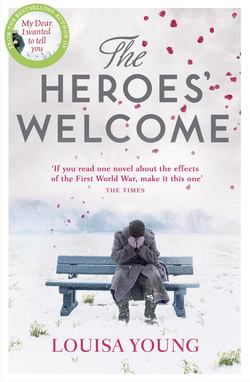Читать книгу The Heroes’ Welcome - Louisa Young - Страница 13
Chapter Five
ОглавлениеFrance, April 1919
Riley was out in the world again, and Nadine was terrified for him. She was scared for him being in France again – but it was so different here in the south, he said. Even the language, they agreed, did not sound like the French they had heard in the north. He could feel as if they were in a different country: this sun, these astonishing colours. Olive trees, lizards, lavender. It was nothing like – there. And she knew that to be true.
Peter had insisted on giving Riley and Nadine the honeymoon as a wedding present (despite Riley’s reluctance to accept gifts, which he maintained despite Nadine’s desire that he relax about money). Peter had always been rather sentimental about his own honeymoon (probably it was the last time he and Julia were really happy, Nadine thought. Perhaps the only time). A little hotel in Bandol had been organised for them.
They arrived at night, rattling from the station under a black starless sky, and with no idea of surroundings other than smells – jasmine, pine – and sounds – rattling harness, creaking wheels, the bizarre orchestra of cicadas. In the morning, Nadine threw open the shutters of the cool dim bedroom, and when she saw the beauty that was before her – the radiant glory of blue dancing sea, green musing pines and golden glowing sunshine – she burst into tears.
Riley rolled over. ‘What is it?’ he called, alarmed.
‘I’m alive,’ she said. ‘To see this. Look at it. Look. All this was going on all the time we were so bleak.’
They ate fish and fennel, smelt mimosa – what a miracle that was – and sweet broom and salt. They swam in the spring-fresh sea. Nadine bought Riley a fisherman’s shirt and, it turned out, developed freckles on her nose and forehead. The hotel had a small boat in which they paddled up the calanques in search of kingfishers and turtles and flamingoes. Over and over they found themselves grinning and gasping over something lovely. The scarf that constantly lay double-coiled around Riley’s chin or throat began to be left to hang in a single drape, relaxed, protecting only the back of his neck from sunburn, not his scars and his dignity from the eyes of strangers.
In the cafés, at first, she ordered for him. She explained exactly what she wanted: the bouillabaisse, strained, with extra cream; the boeuf stroganoff very tender, the chicken broth and the oeuf en cocotte, crème de this and soufflé de that. Her concern was visible, she knew: maddening to him and miraculous simultaneously. He let her order. But he would not let her shave him. ‘I’m not going to be a baby to you,’ he warned, and she said, ‘Fat chance,’ which she knew made him feel safer – but was that part of it? Is wanting him to feel safe another level of nurseyness and mothering? Early on, she watched him standing shirtless by the china bowl in the barely furnished room, going carefully around his scars, trying to do the folds under his chin where he could not see, nor properly feel. She could see him seeing her in the mirror sitting on her hands on the bed, wanting to help. The only time he let her, despite her tenderness she hurt him, and he flinched, and she could see that he could see that she found it hard not to weep, and he was sorry, and she was sorry, and after that she left the room while he tended himself. He’s a miracle, she thought. So many things he could have died of. Flaps of skin from his scalp down under his chin, his manufactured chin. He’s Frankenstein’s not-monster. Sometimes she found herself shaking at the thought of what he had been through.
He grew brown in the sun. The waxen scalp skin on his jaw took it differently to the rest of his face, but even so he did not want to grow a beard. He paddled the calanque, and day by day she saw his youth and physical strength starting to flood through his body, healing him and fixing him. It transfixed her. She sketched him each day, to map the transformation as it happened, but her sketches were not good enough and she wished she could photograph him. On the third night, she was watching him sleep, wanting to look more closely at him than his manner when awake would allow, to unveil him. Moonlight was falling on his face, on the strangeness of his reconstructed mouth with its slight downward drag at the right-hand corner and the odd lift at the left, a sort of ugly Harlequin half-smile. She wondered if she feared it, if she wanted to look inside, and didn’t dare. She never, ever wanted to offend him or upset him. He stirred and half woke, under the strength of my stare, she thought, and he hoicked himself up and looked at her.
‘My dear,’ he said, and then thought for a while, and said something more – but his mouth was always clumsier after sleep, and also the moonlight was off his face now, and she could not see him to understand him. It had been interesting, academically, to learn that she needed to read his face, but it was not easy, not helpful to the confidences of the pillow and the encouraging sympathies of the dark. She shook her head, and didn’t want to say, ‘I can’t understand you,’ and terribly wanted to kiss him, because that would tell him …
